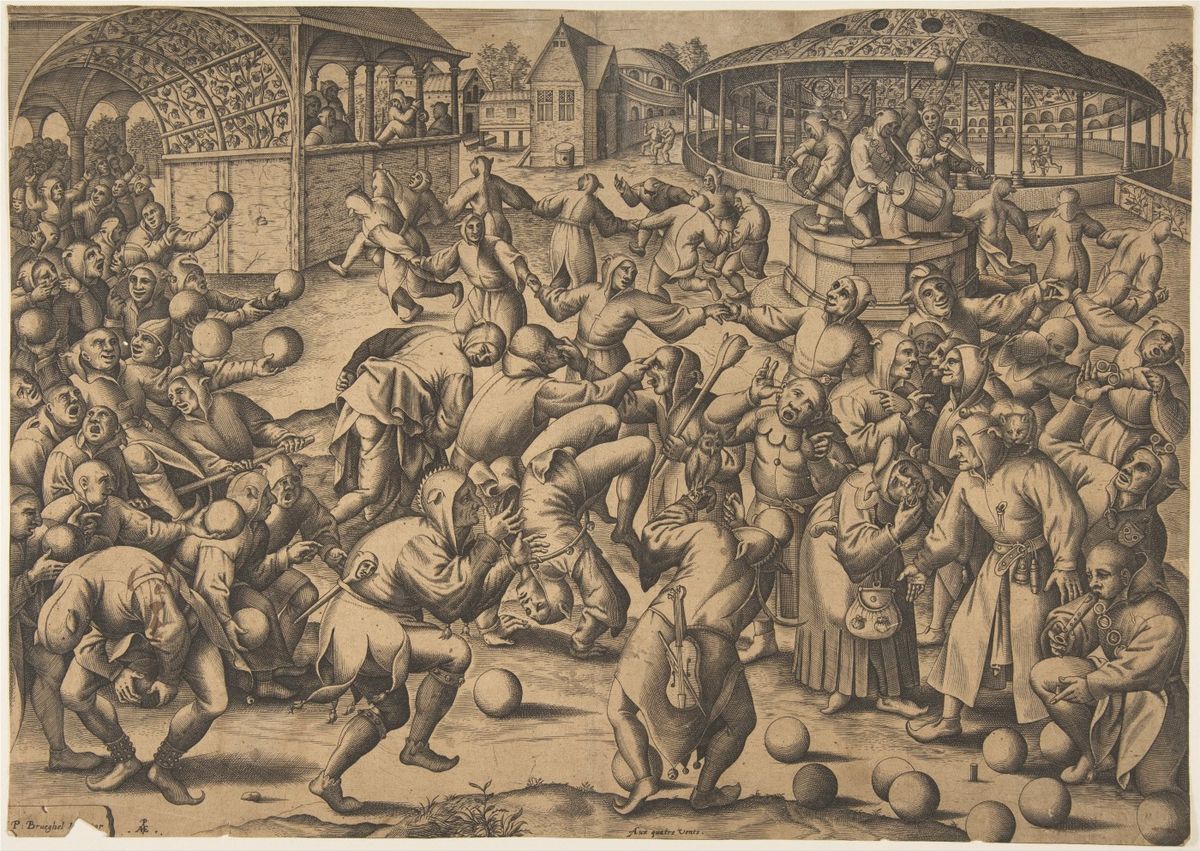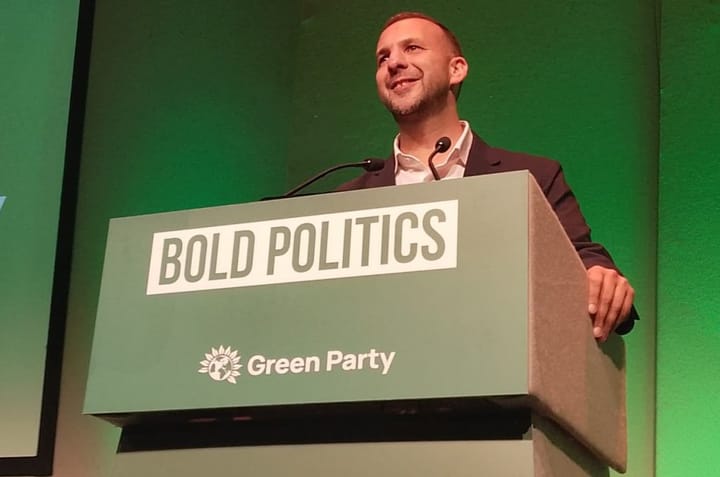What do names tell us about people — and what should we have known about Trump?
Nominative determinism: the gift that keeps giving. The term, coined by the British science journalist John Hoyland, in a 1994 New Scientist column, refers to the (purely hypothetical) tendency to pursue a calling or, more broadly, embody an attribute implied by your name.
Those willing to suspend their disbelief—the “science” behind the theory, laid out in a 2002 Journal of Personality and Social Psychology article claiming that “people disproportionately choose careers whose labels resemble their names (e.g., people named Dennis or Denise are overrepresented among dentists),” is about as solid as vulcanized ectoplasm—can think of nominative determinism as the cause behind the aptronym, defined by the Oxford English as a name “regarded as amusingly appropriate” to one’s occupation and more loosely by the Encyclopedia Britannica as “a name that fits some aspect of a character.”
Still, names are rich veins of comedy gold, and can be revelatory, too. The psychoanalyst Carl Jung, expounding on his theory of meaningful coincidences, or synchronicities, remarked on the “sometimes quite grotesque coincidence between a man’s name and his peculiarities or profession,” a happy accident that confirms this atheist’s unshakable conviction that if there is a God, he’s a sardonic prankster who amuses himself, between bouts of poking the human anthill with a sharp stick, by meting out poetic justice in the form of well-aimed aptronyms.
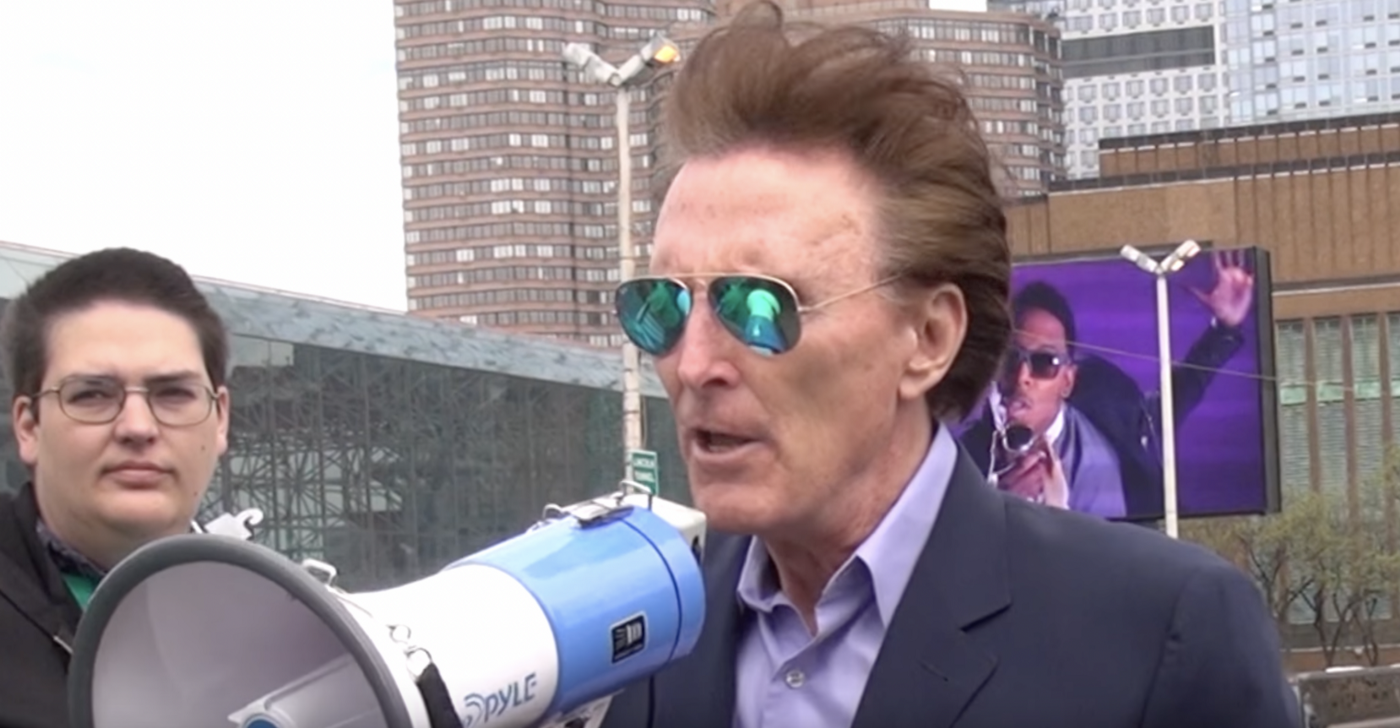
Take, for example, the radio host Gary Null, notorious anti-vaxxer, HIV/AIDS denialist, author of Healing with Magnets,proponent of worthless cures like coffee enemas and cranial osteopathy, velvety-voiced peddler of “wellness” nostrums (who—pardon my schadenfreude—nearly died from a Vitamin D O.D. brought on by his own “Ultimate Power Meal” supplements). His surname means “amounting to nothing” and “having no value.” Be not gulled, rube.
It gets better: I’ve long been a gleeful critic of Daniel Pinchbeck, an unstoppable gusher of New Age blither (he aspires to the status of a psychedelic oracle like Terence McKenna but I like to think of him as Harold Camping for Russell Brand fans) who wondered if the portentous year of 2012 might usher us into a “multidimensional realm of hyperspace triggered by mass activation of the pineal gland” and blamed his “sexually fixated, creepy, predatory” behavior around nubile women of the woo-woo persuasion on his mother’s refusal to breastfeed him.

Pinchbeck, like many would-be gurus, works the ayahuasca circuit (neo-psychedelic retreats, online seminars on “cultivating multidimensional awareness,” etc.), where credulity and Man’s Search for Meaning come together in a harmonic convergence that makes cash registers ring.
Imagine, then, my malicious delight when I discovered that pinchbeck is helpfully defined by the Collins English Dictionary as “an alloy of copper and zinc, used in imitation of gold” and “something sham, spurious, or counterfeit”—fool’s gold, by any other name.
§
Of course, the most delicious instance of the too-perfect aptronym is Donald J. Trump. Whether as a given name or a surname, “Donald” is derived from the Celtic words for “world” and “power,” more specifically from the Proto-Celtic Dubno-valos (“world-mighty, ruler of the world”)—an appropriately allegorical moniker for an aspirational tinpot dictator who fawned on authoritarian leaders like Kim Jong-un and Rodrigo Duterte.
But it’s the ironic distance from “Donald” to “Trump” that turns his last name into a punchline. The result is a textbook example of bathos, the giddy descent from the sublime to the ridiculous, played for laughs.
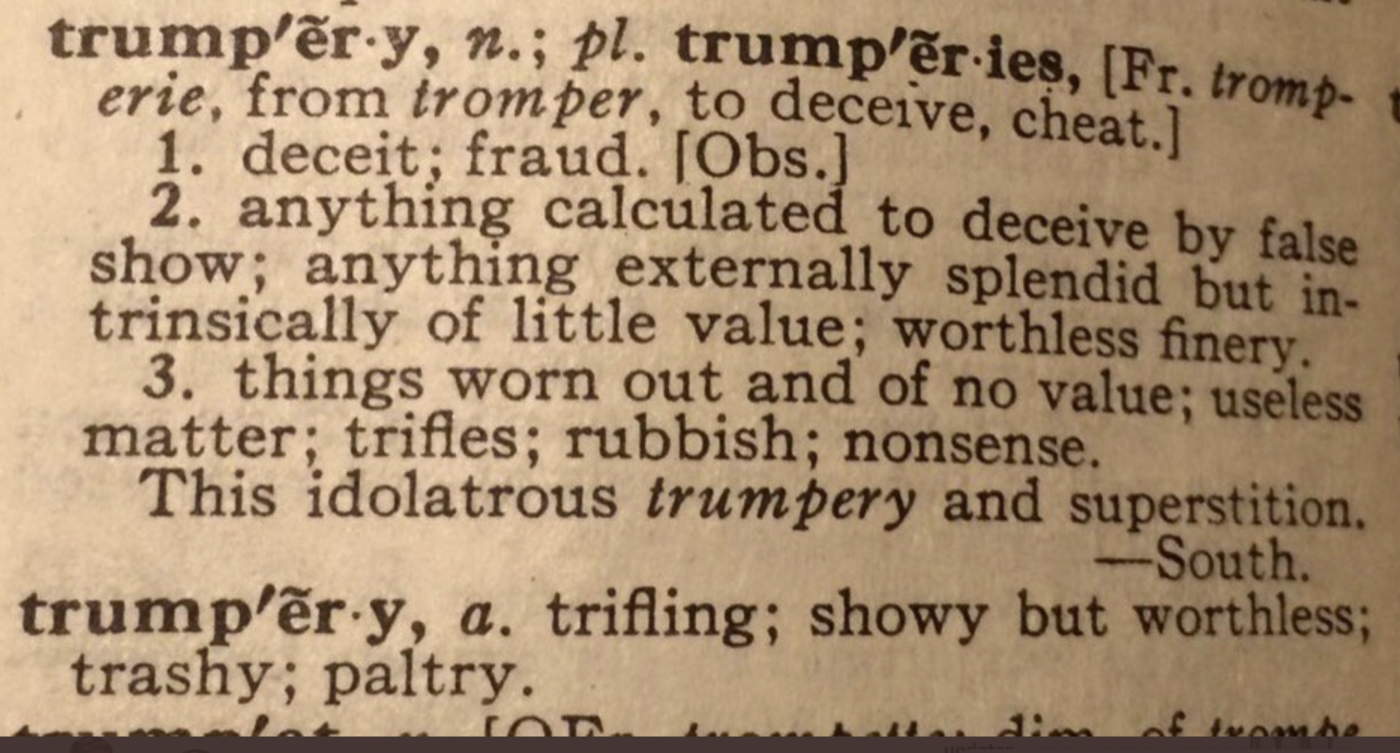
Most readers will know “trump” in its transitive-verb sense: to get the better of or override, a usage that suits to a “T” Trump’s boorish, infantile need to be the winningest guy in the room, sharp-elbowing other world leaders out of the spotlight, one-upping everyone, a Boss Baby with a nuclear football. The phrasal verb “trump up” (“invent a false accusation or excuse”) will be familiar to many, too, and will strike those whose cognitive abilities aren’t impaired by prolonged exposure to the MAGA cap as a fittingly “grotesque coincidence between a man’s name and his peculiarities” (in this case his habit of smearing his critics with bogus allegations, like his batshit claim that Ted Cruz’s father “and crazy Lee Harvey Oswald” had breakfast before Oswald had his date with destiny in Dealey Plaza).
To be clear, The Donald’s surname is an Americanized version of the German Drumpf, a proper name whose only relation to Trumpy shenanigans like trumpery (defined by Webster’s as “1. Deceit; fraud. 2. Anything calculated to deceive by false show; anything externally splendid but intrinsically of little value; worthless finery”) is partly homonymic and otherwise rhetorical. There’s no linguistic connection between Trump’s surname and the verb “trump” and its phrasal variations. Even so, that’s irrelevant to our purpose, which is to tease out their aptronymic implications for comic (yet illuminating!) effect.
The etymology of “trump” (the verb) is the God of Irony’s greatest gift to humankind (subspecies Homo Diogenes). Drilling down through the sedimentary layers of historical usage, we find “trump” synonymous, across the ages, with deceit.
The Online Etymology Dictionary traces the word back to the Old French tromper (“to deceive”), in or around the 14th century, and from there to se tromper de, “’to mock,’ from Old French tromper, ‘to blow a trumpet.’” The Dictionary notes,
Brachet explains this as “to play the horn, alluding to quacks and mountebanks who attracted the public by blowing a horn and then cheated them into buying ….” The Hindley Old French dictionary has baillier la trompe (“blow the trumpet”) as “act the fool”…
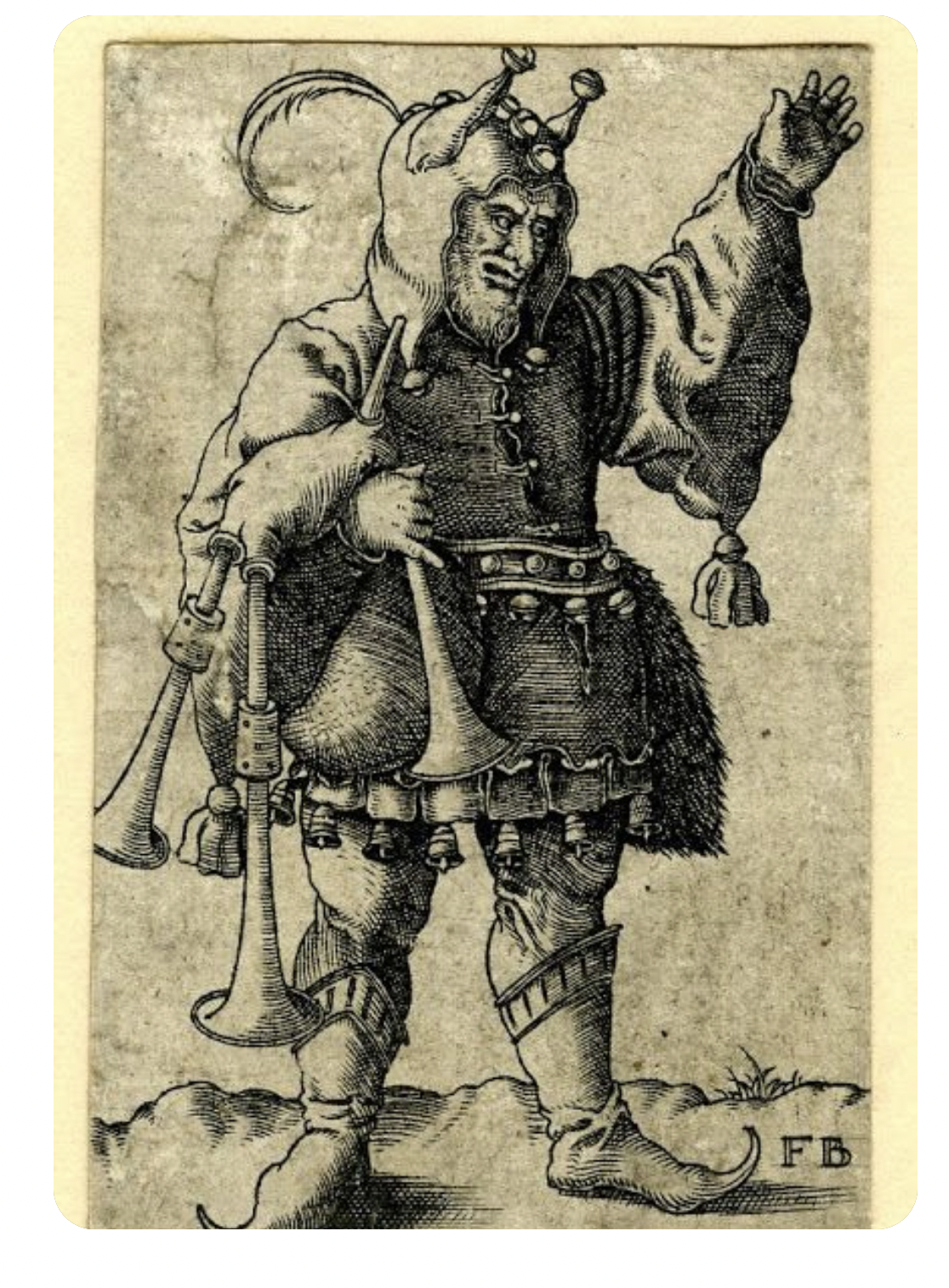
Has there ever been a more on-the-nose description of The Donald, a braying, bumptious mountebank who built his real-estate empire on tax evasion, bilking banks, and greasing the palms of corrupt pols, with more than a little help from the tabloids and entertainment TV, then bragged about his chicanery in The Art of the Deal; a smirking, self-satisfied ignoramus and serial fabricator who conned millions into electing him president, then duped them into swallowing the patently preposterous Big Lie that he’d been cheated out of a second term, then turned around and swindled those same sapheads, it now appears, out of more than $250 million in donations to fund dead-on-arrival legal challenges to Biden’s victory? (Adding insult to idiocy, a good bit of that money was diverted, it turns out, to worthy causes such as Kimberly Guilfoyle’s $60,000 fee for introducing her fiancé, Donald Trump Jr., at the January 6 “Stop the Steal” rally that lit the insurrection’s fuse. Not bad for less than three minutes’ work.)
A fool and his money are soon parted but the Fool is seldom without his trumpet, which he uses to bamboozle the rubes. An engraving (circa 1568) by Pieter Bruegel the Elder depicts a peddler hawking trumpets. A disapproving bystander admonishes him, in the picture’s caption, “to take them away and deceive people where folk ‘are still deaf though they hear, and blind though they see.’” Our Donald, who acts the fool but is Barnumesque in his mastery of crowd psychology, is a virtuoso of gaslighting, well-skilled in persuading MAGA Nation to turn a deaf ear on yesterday’s statements and to deny the evidence of its eyes.
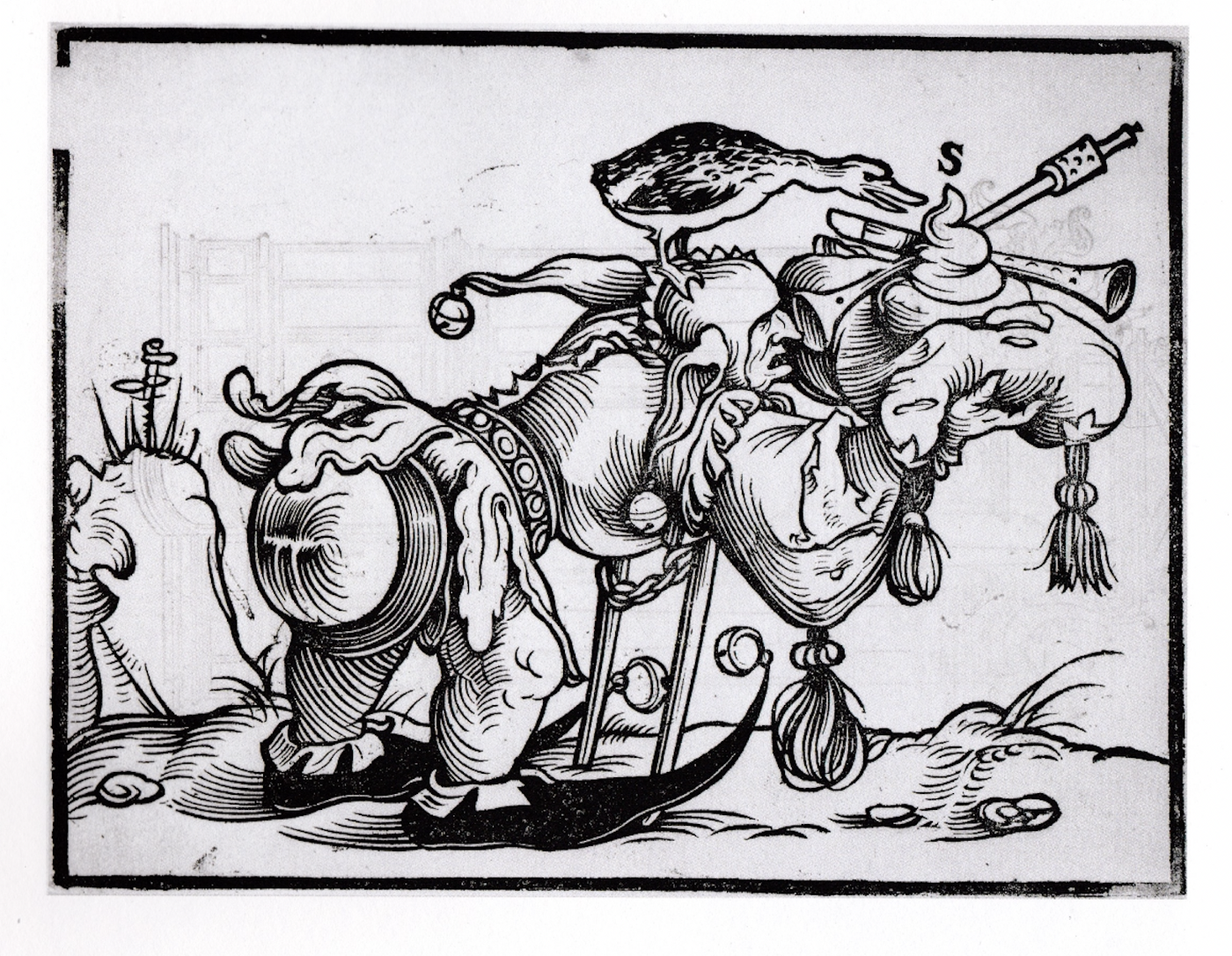
In medieval and Renaissance iconography, the Fool bares his buttocks to mock social norms and signal his animality. Sometimes, he plays his trumpet with his anus, as in Bosch’s musical hell. In yet another too-perfect coincidence, “trump,” in the U.K., is a slang term for flatulence (“To give forth a trumpet-like sound; specifically to break wind audibly,” says the O.E.D.).
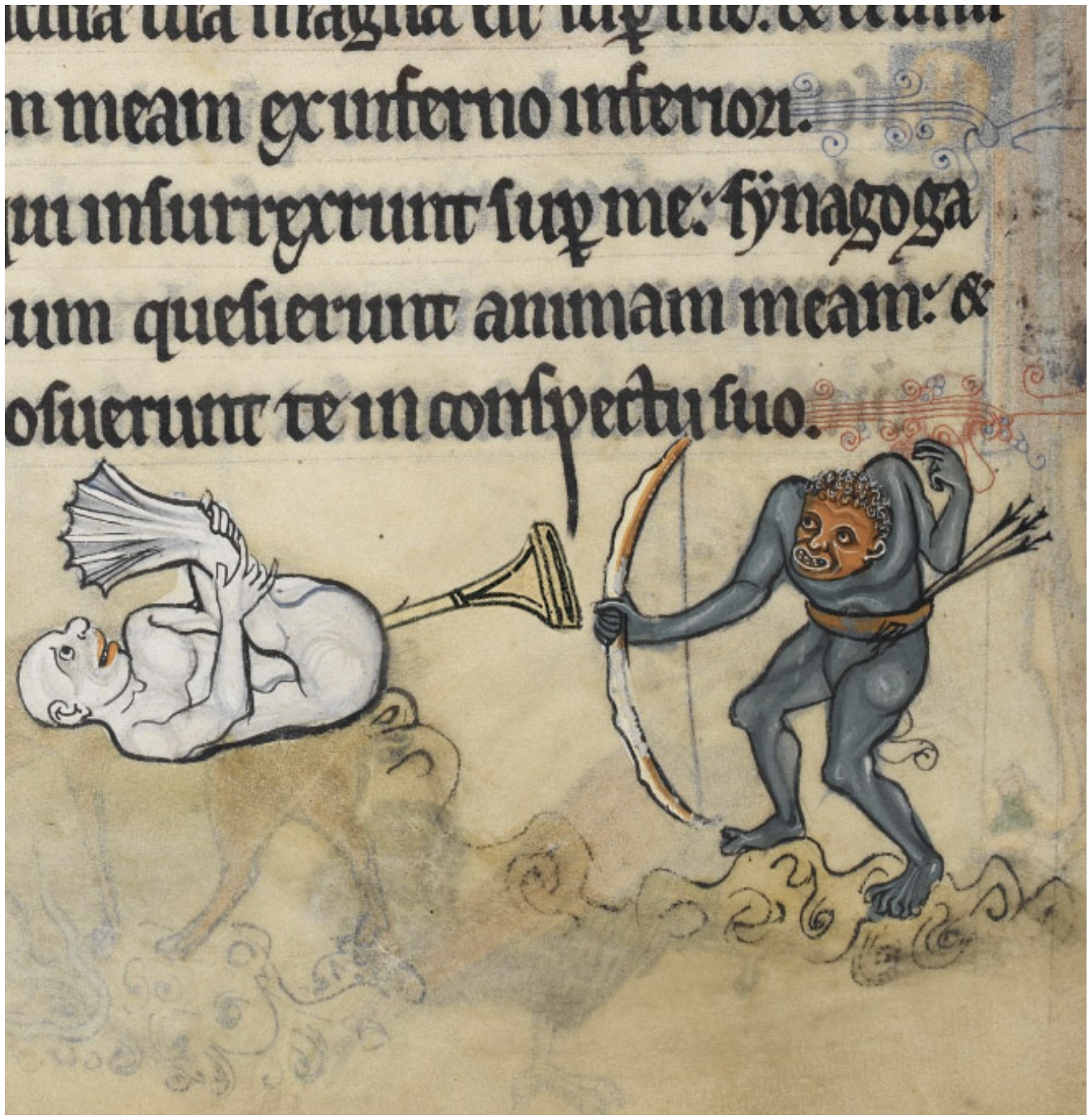
If nomen est omen (“the name is a sign”), as the proverb has it, Trump’s name was a warning label clear enough for all but the most irony-deprived and humor-bereft to read.
Yet, “deaf though they hear, and blind though they see,” a crazy-quilt patchwork of Americans—Christian-nationalist evangelicals; angry white tribalists bound by racial anxieties and a fear and loathing of the “shitlibs” and the socialist menace; and an anti-tax, antigovernment executive class happy to cut a deal with the Devil in return for mammoth tax cuts and a regulatory rollback—saw in Trump what they wanted to see: their last best hope for hardening the perimeter of Fortress America against the mongrel hordes, holding the line against the threat posed by demographic change (“The Great Replacement”), and pushing the plunger on the controlled demolition, from within, of an America gone wrong.
What’s next? The libertarian pirate utopia of Peter Theil’s and Elon Musk’s dreams? A fascist theocracy where the crow-pecked bodies of executed feminists, trans or gay “gender traitors,” and, presumably, “fake news” journalists and members of Antifa hang rotting on the wall as a moral caution to god-fearing Americans? The civil war anticipated, in some cases eagerly, by the heavily armed heartlanders the journalist Jeff Sharlet is interviewing for his book-in-progress, The Undertow: Scenes from a Slow Civil War?

No one who voted for Trump can say for sure, but he blew the trumpet and they joined the parade because they liked the tune, especially the part where he played the butt trumpet, mocking the libs and their elite-media mouthpieces, terrorizing the Other, farting in the general direction of decency and civility, taking a dump on democracy. The Fool and his trumpet are gone but millions have taken up his song, piping America to the brink of the abyss.
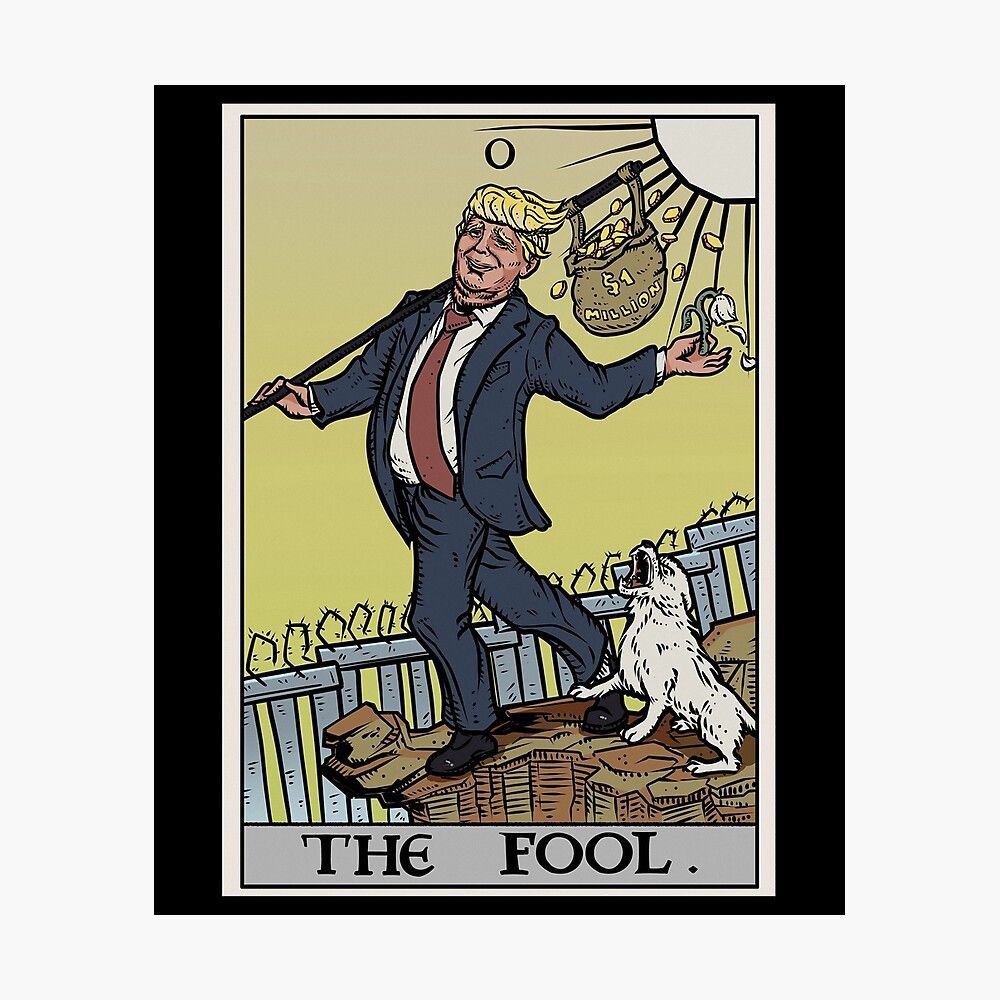
Mark Dery is a cultural critic, essayist, and the author of four books: Escape Velocity, a critique of the libertarian-bro ideology that dominated the Digital Revolution of the ‘90s; The Pyrotechnic Insanitarium: American Culture on the Brink, an unflinching look at American mythologies (and pathologies), from the Heaven's Gate cult to the Unabomber to the psycho killer clowns who haunt the collective unconscious; the essay collection I Must Not Think Bad Thoughts; and, most recently, the biography, Born To Be Posthumous: The Eccentric Life and Mysterious Genius of Edward Gorey. A wry observer of the American Scene in the tradition of H.L. Mencken, Gore Vidal, Mike Davis, and Joan Didion, Dery has written on subjects as disparate as the QAnon shaman, conspiracy theory, David Bowie as religious icon, Martin Heidegger as self-help guru, the masculinist agenda of Strunk & White, and Hannibal Lecter as high priest of (forgive the pun) good taste. He popularized the concept of “culture jamming” and, in his 1993 essay "Black to the Future," coined the term “Afrofuturism.” More at https://www.markdery.com Bylines: http://linktr.ee/markdery
